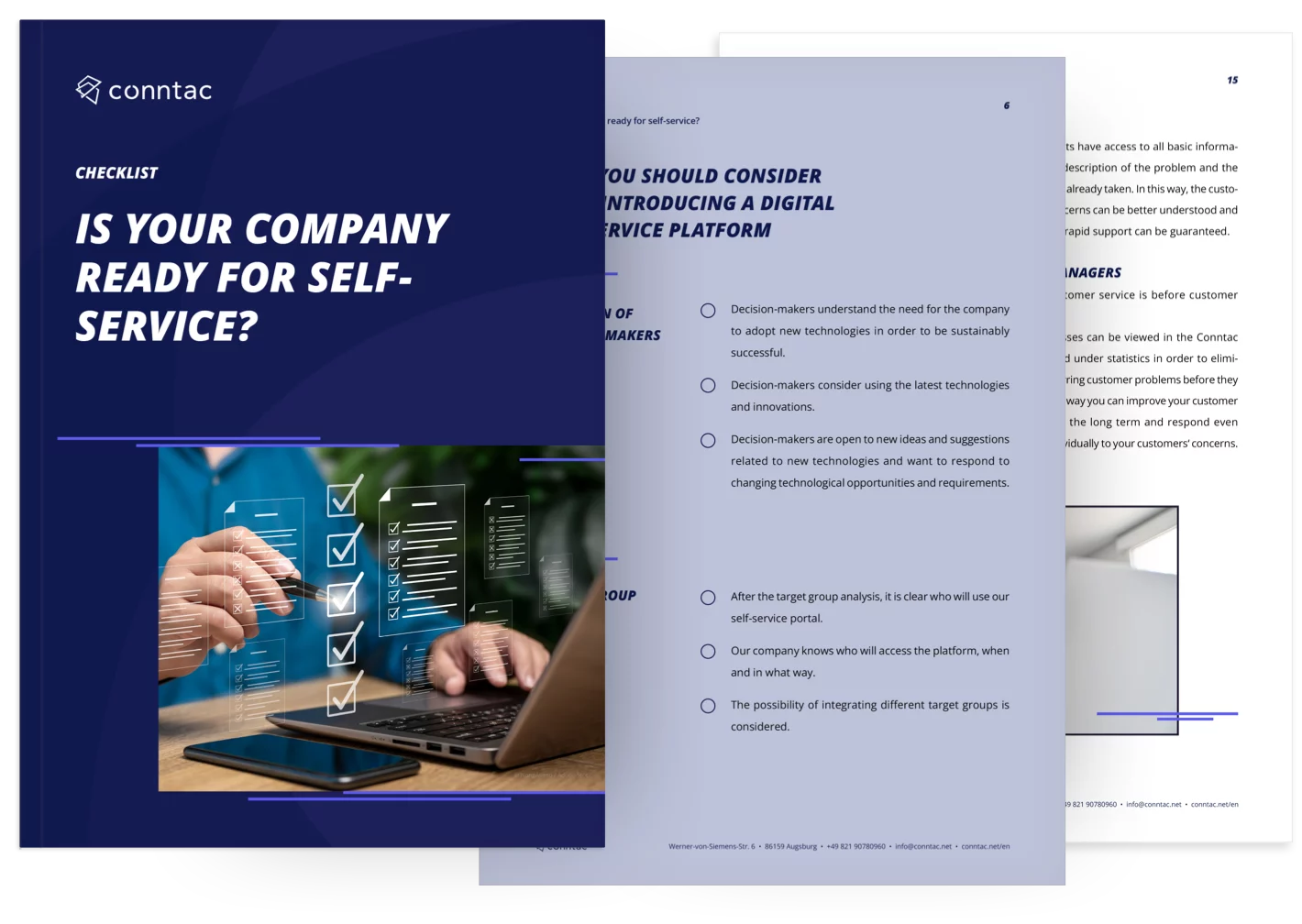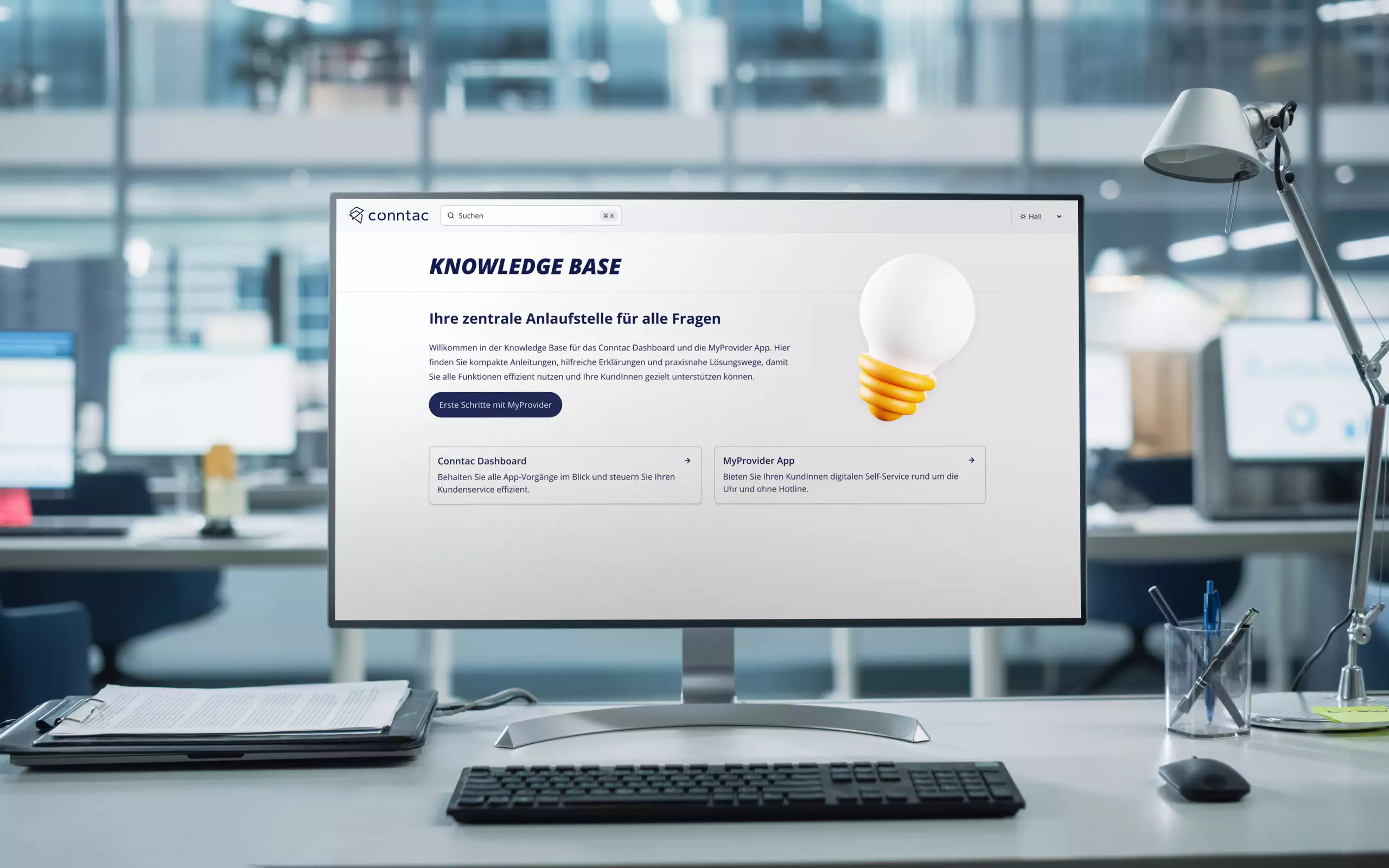Why customer self-service solutions are essential
Customer service requirements are constantly evolving. Customers expect not only quick and competent support, but also personalized support — and preferably around the clock. For companies such as Internet service providers, network operators and public utilities, this means focusing on service quality, optimizing costs and making internal processes more efficient. Modern technologies such as artificial intelligence (AI), automated systems and, in particular, customer self-service solutions play a decisive role in this area of conflict.
Customer self-service: More than just a trend
Self-service solutions enable customers to solve problems independently without having to rely on the help of a service employee. This not only relieves the service hotline, but also creates capacity to deal with more complex issues. Customers today prefer to help themselves. A Gartner report shows that 70% of customers use self-service channels to solve problems. Self-service is essential not only in the B2C sector but also in the B2B sector: According to a Salesforce study, 89% of decision makers in the B2B segment consider self-service essential to drive the development and growth of their companies. It is crucial that the solutions are intuitive to use and available at any time. As a result, companies benefit from lower operating costs and shorter processing times.
Key features of effective customer self-service solutions include:
- Intuitive operation: Even without previous technical knowledge, customers must be able to easily solve their concerns. Find out more about intuitive user interface.
- Seamless integration: If a problem cannot be solved independently, it should be forwarded to the service agents with the help of various contact channels work smoothly.
- Timeliness and consistency: Outdated or conflicting information reduces trust and leads to frustration.
Technologies that support self-service
The development of customer self-service solutions is significantly driven by the use of modern technologies:
- Artificial intelligence (AI): AI-powered systems can analyze customer inquiries, automatically provide answers and suggest personalized solutions. Chatbots and virtual assistants, for example, make it possible to resolve simple concerns immediately.
- Omni-channel systems: Self-service should be part of a comprehensive omnichannel strategy. Customers expect consistent support, regardless of whether they seek support via app, website, or telephone.
- Robotic Process Automation (RPA): RPA technologies automate repetitive tasks and ensure that requests are processed faster and more precisely.
- Data analysis: Real-time analyses make it possible to uncover weaknesses in customer self-service and to continuously optimize processes.
Why customer self-service is essential
There are numerous benefits for companies that rely on self-service:
- Reduction of service costs: By relieving service staff, operating costs can be significantly reduced.
- Improved customer satisfaction: Self-service offerings increase flexibility and strengthen customer trust.
- Increased efficiency: Automated processes reduce errors and processing times.
- Fewer on-site deployments: Thanks to independent problem solving by customers, the number of necessary technician visits is reduced.
Implementation challenges
Integrating customer self-service solutions requires a well-thought-out strategy. The biggest challenges include:
- Ensuring usability: Customer needs must be continuously analyzed and solutions adapted accordingly.
- Technical infrastructure: A seamless connection to existing systems such as CRM or ERP is essential.
- Collaboration between departments: Marketing and customer service should work closely together to improve the findability and efficiency of self-service offerings.
myProvider: Customer self-service for ISPs, network operators and public utilities
Die MyProvider Self-Service Solution offers Internet service providers, network operators and public utilities a central platform that helps customers solve problems independently. 24/7 availability relieves the service hotline, shortens processing times (AHT) and reduces technician appointments (Truck Rolls). The solution enables rapid implementation without initial IT effort and ensures predictable costs. In addition, detailed data analyses provide valuable insights for better decisions, while features such as up-selling and cross-selling help to increase sales. With myProvider, companies improve their service quality and create the basis for long-term customer loyalty.
Conclusion: Customer self-service as the basis of modern customer service
Companies that successfully implement self-service solutions not only strengthen their market position, but also create the basis for long-term customer relationships. The use of modern technologies and continuous optimization of systems ensure a high quality of service, from which both customers and companies benefit.











